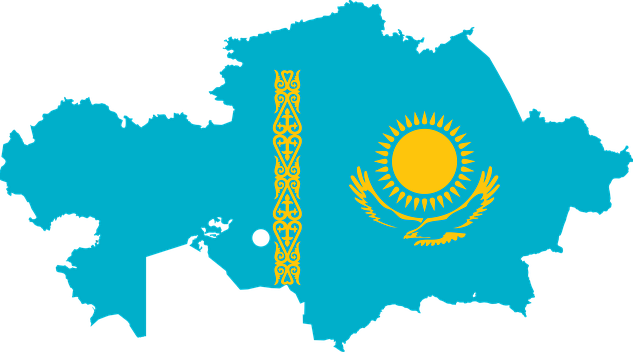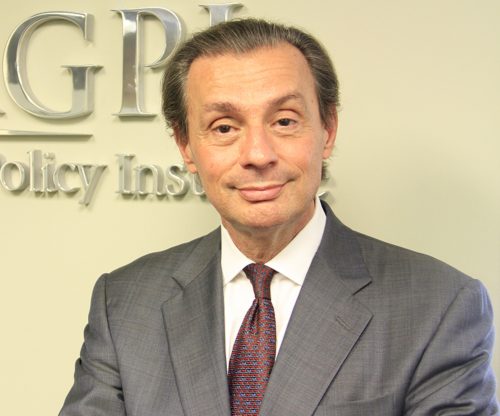Issue Briefs

The Kazakh Protesters Are Not Terrorists
Paolo von Schirach
January 09th, 2022
WASHINGTON – Just hours after the news of massive street protest in Kazakhstan, various pro-Moscow analysts around the world –from Europe to the Middle East– immediately opined that potentially destabilizing riots in a major, oil and gas rich country bordering Russia somehow benefit the US. Therefore, its stands to reason to conclude that U.S. intelligence and its agents must have had something to do with orchestrating them. Following this uncritically accepted narrative, many are looking at all possible US and or Western footprints in Kazakhstan, such as modest US financial support to civil society NGOs, in the effort to establish that Washington is really behind all this.
Made up story of Western meddling
This is of course complete nonsense. The truth is that this is a spontaneous revolt of the hungry and the angry. Kazakhstan is a potentially rich country endowed with substantial oil and gas reserves, and other mineral riches. But none of this benefits the larger society. Just like Russia and many other former Soviet Republics, Kazakhstan is a very corrupt and poorly managed country. Since the breakup of the Soviet Union it has been run by Nursultan Nazarbayev, an old autocrat who only recently stepped aside while still exercising a great deal of authority. Regarding corruption and stupendous income inequality, according to The Wall Street Journal “Only 162 people account for 55% of total wealth in Kazakhstan”.
We know that the street riots were triggered by the doubling of the price of the most commonly used fuel for auto transportation. In a country where most people make about $ 600 a month such a price jump hurts millions. If suddenly super expensive fuel was the spark, it seems that the street protests quickly morphed into anti government riots. While accounts are sketchy, it would appear that armed criminal joined some riots. But it is hard to detect any clear strategy on the part of the protesters. Still, be that as it may, with Russia’s help, most likely this outburst of unrest will come to a quick, if bloody, end. Even if some of them are armed, the rioters cannot prevail. The government promised swift retribution. As The Washington Post headline and article (January 7) tell us:
“Kazakhstan president gives shoot-to-kill order against demonstrators, vows no negotiations“
“President Kassym-Jomart Tokayev said he had mostly regained control of the country as Russian-led troops arrived but “terrorists” continued to attack “peaceful citizens”. He dismissed calls for negotiations to deal with the antigovernment protests roiling the country for the past week as “stupidity”. “
So, there you have it. In this increasing Orwellian world, according to the Kazakh government, ordinary civilians protesting against sky high fuel prices are called –all of them– dangerous “terrorists” who need to be killed on sight, in order to protect “peaceful citizens”. And of course, Russia’s help in this necessary cleanup operation is most welcome.
Sadly, nothing new here. The very top concern of any autocracy is self-preservation. Giving in to any protesters, whatever their complaints and demands, creates a dangerous precedent. It may and it will be interpreted as political weakness by all opponents. Any protests that end up with concessions from the government will invite more protests. Hence the need to immediately squash all dissent, showing no mercy. Shoot to kill –as the president ordered. Indeed, kill them all.
Let’s be clear: what just took place in Kazakhstan is neither a coup nor an organized insurrection. These are the desperate actions of angry people who risk their lives in order to vent that they are fed up with the high cost of living, bad government, corruption, autocracy and too many promises of reforms that never saw the light.
Power struggle among the thieves
That said, we observe now that this unexpected crisis has been exploited by Kazakh president Tokayev as a golden opportunity to get out of the shadow of former president Nazarbayev, the former leader who had handpicked him with the expectation that he would behave like a loyal servant, taking and executing orders from the real power, as needed. In the aftermath of the riots, Tokayev, alleging that high ranking security officials –all of them loyal to Nazarbayev– are guilty of treason, had them all arrested. At the same time, he made himself head of a Security Council, an important position held until now by Nazarbayev. We shall see how this power struggle among rival political clans will play out. Maybe Tokayev comes out on top, finally pushing out Nazarbayev, his family and the oligarchs loyal to him. Or may be not.
No democracy
Still, whatever the outcome of this fight among the elites, nothing will change for the ordinary Kazakhs. Not a chance that these dark and possibly bloody maneuvers will somehow result in more democracy or accountability. Whoever comes up on top, the country is and will continue to be a dictatorship, a police state run by kleptocratic elites focusing only on the preservation of power and their ill-gained wealth.
The views and opinions expressed in this issue brief are those of the author.
 |
Paolo von Schirach is the President of the Global Policy Institute, a Washington DC think tank, and Chair of Political Science and International Relations at Bay Atlantic University, also in Washington, DC. He is also the Editor of the Schirach Report. |